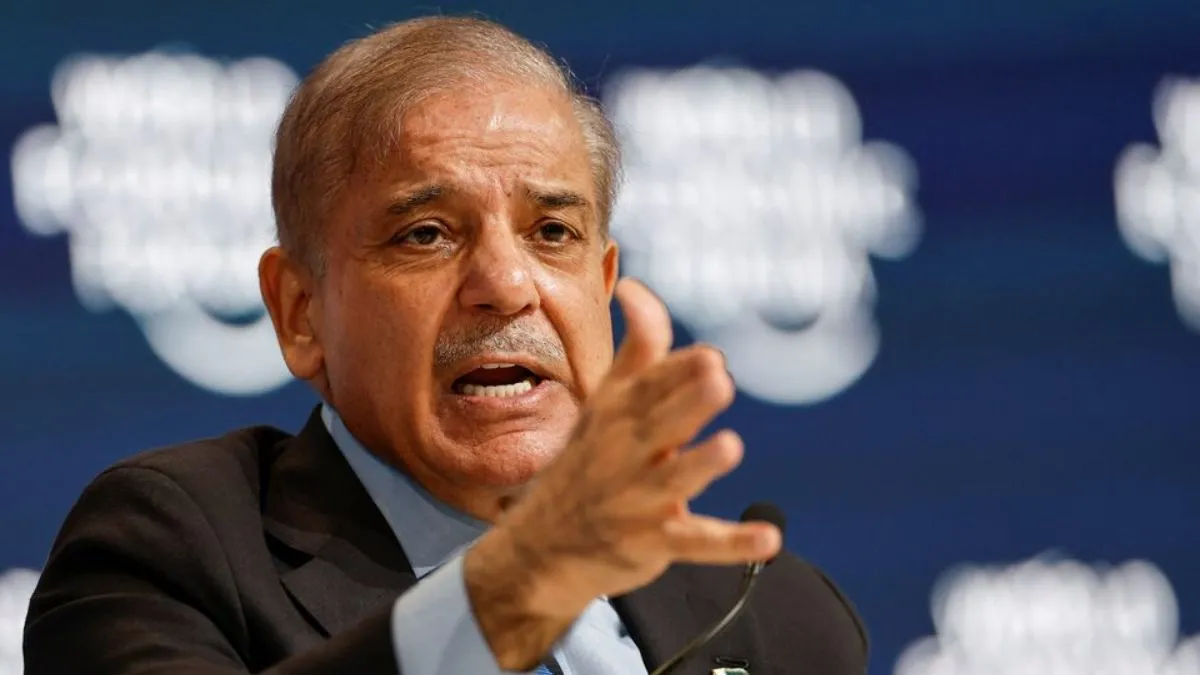- By Supratik Das
- Sat, 31 May 2025 09:34 AM (IST)
- Source:JND
In a searing escalation of the war of words over the Indus Waters Treaty (IWT), Pakistan Prime Minister Shehbaz Sharif on Friday accused India of trying to "weaponise water" and warned that Islamabad would not stand by as New Delhi crossed the "red line" by unilaterally suspending the water-sharing agreement. Sharif was addressing the International Conference on the Preservation of Glaciers in Dushanbe, Tajikistan, where more than 2,500 representatives from 80 member states of the United Nations and 70 international organisations attended.
The top-level meeting was hosted by the government of Tajikistan jointly with the UN, UNESCO, WMO, and the Asian Development Bank. According to Dawn, “India’s unilateral and illegal decision to hold in abeyance the IWT, which governs the sharing of the Indus Basin’s water, is deeply regrettable. Millions of lives must not be held hostage to narrow political gains, and Pakistan will not allow this,” said PM Shehbaz Sharif. Earlier this week, while visiting Tehran, PM Shehbaz Sharif extended talks with India to solve "long-standing issues", such as Kashmir and water-sharing issues. Nevertheless, India quickly rejected the idea, reaffirming that any sort of dialogue would be restricted to Pakistan-occupied Kashmir (PoK) alone. External Affairs Minister S. Jaishankar has once again asserted that PoK is part of India and that no negotiations on any other matter will be conducted until cross-border terrorism stops.
India's Post-Terror Attack Response: Indus Treaty In The Spotlight
India had previously suggested reviewing the 1960 Indus Waters Treaty following the April 22 Pahalgam, Jammu and Kashmir, terror attack, which it held responsible for Pakistan-backed forces. As part of a punishment strategy, New Delhi had indicated shelving the treaty "in abeyance", eliciting sharp criticism from Islamabad. Prime Minister Narendra Modi, in his speech at the rally in Deshnoke, Rajasthan, last week, made a sharp warning. "Pakistan won't be permitted to utilize a single drop of water that is rightfully India's under the treaty," he said.
Despite the diplomatic crisis, the Indian government has stepped up large dam and canal projects on the western rivers—Chenab, Jhelum, and Indus—to exercise its full rights under the treaty. Major developments have been given the go-ahead, reports Reuters, quoting senior officials as saying:
• The Jammu and Kashmir-based Ranbir Canal is being enlarged to lift up to 150 cubic metres of water per second, from the existing 40.
• Union Territory's hydropower capacity is being expanded from 3,360 MW to close to 12,000 MW.
• In-house proposals entail new dams on Jhelum and Chenab tributaries, the purpose of which is to increase irrigation and water security.
Signed in 1960, the Indus Waters Treaty was facilitated by the World Bank and is one of the few bilateral treaties that have endured several wars and periods of hostility between the two countries. Indian officials say, however, that frequent terror attacks and Pakistan's political abuse of the treaty have given New Delhi no other option but to reassert its rights.

